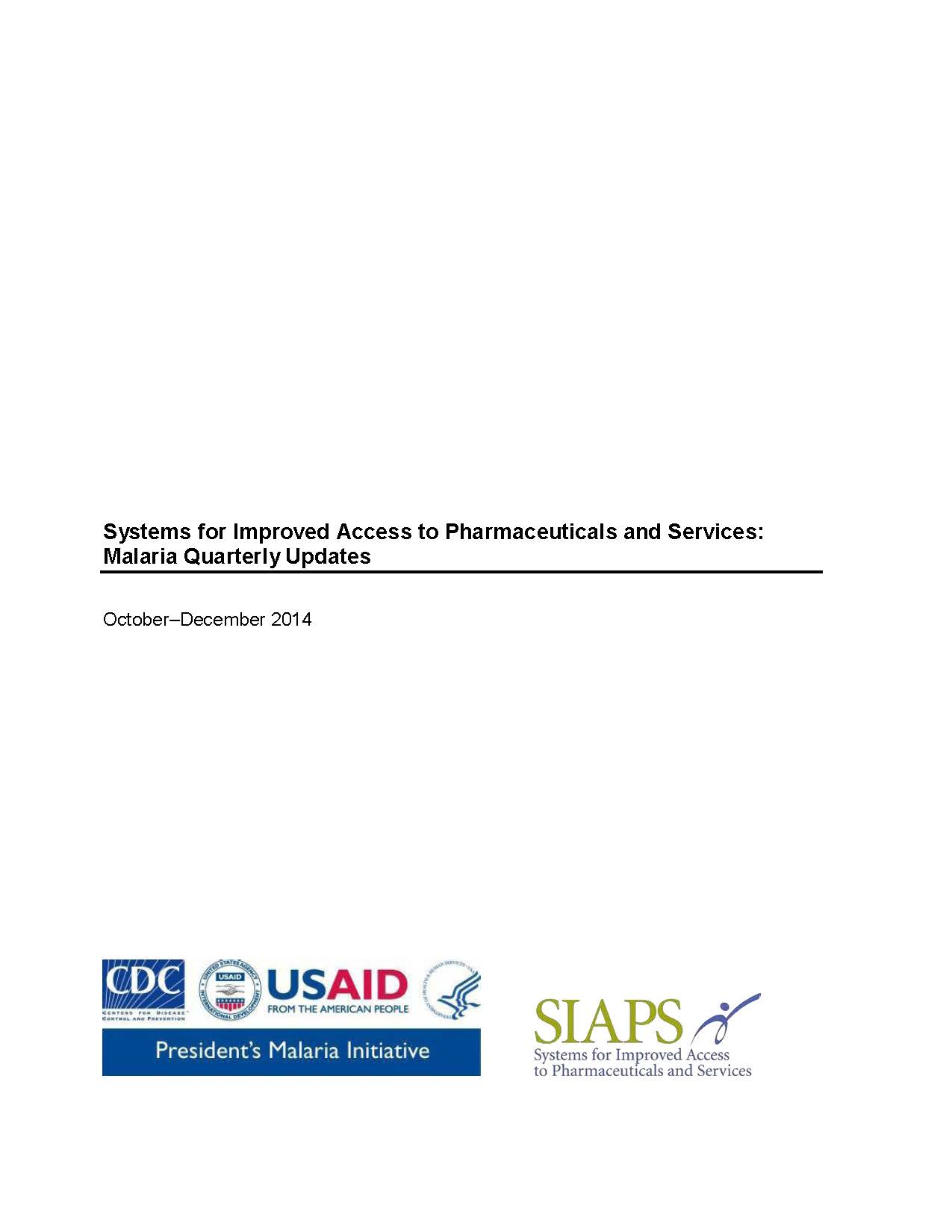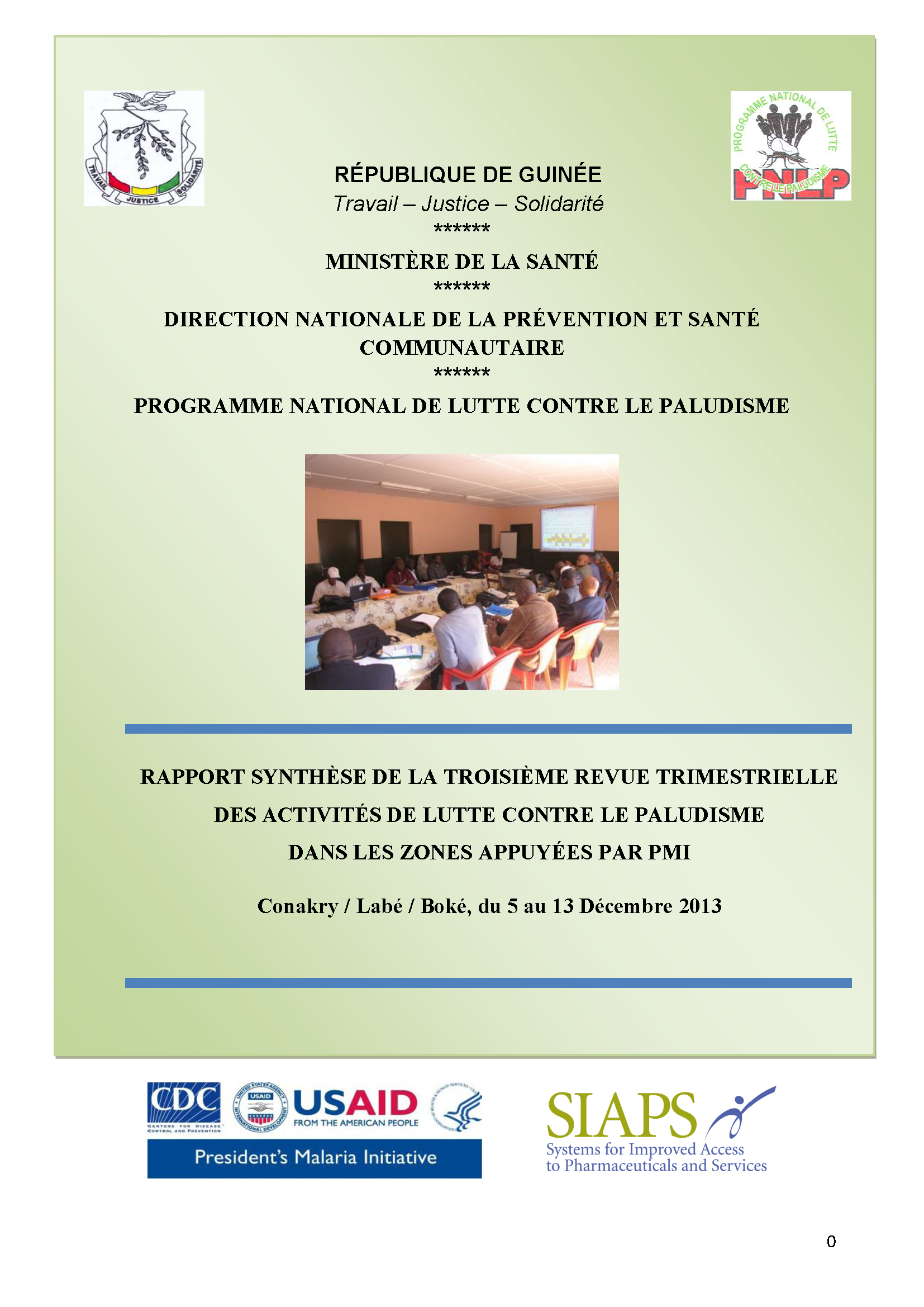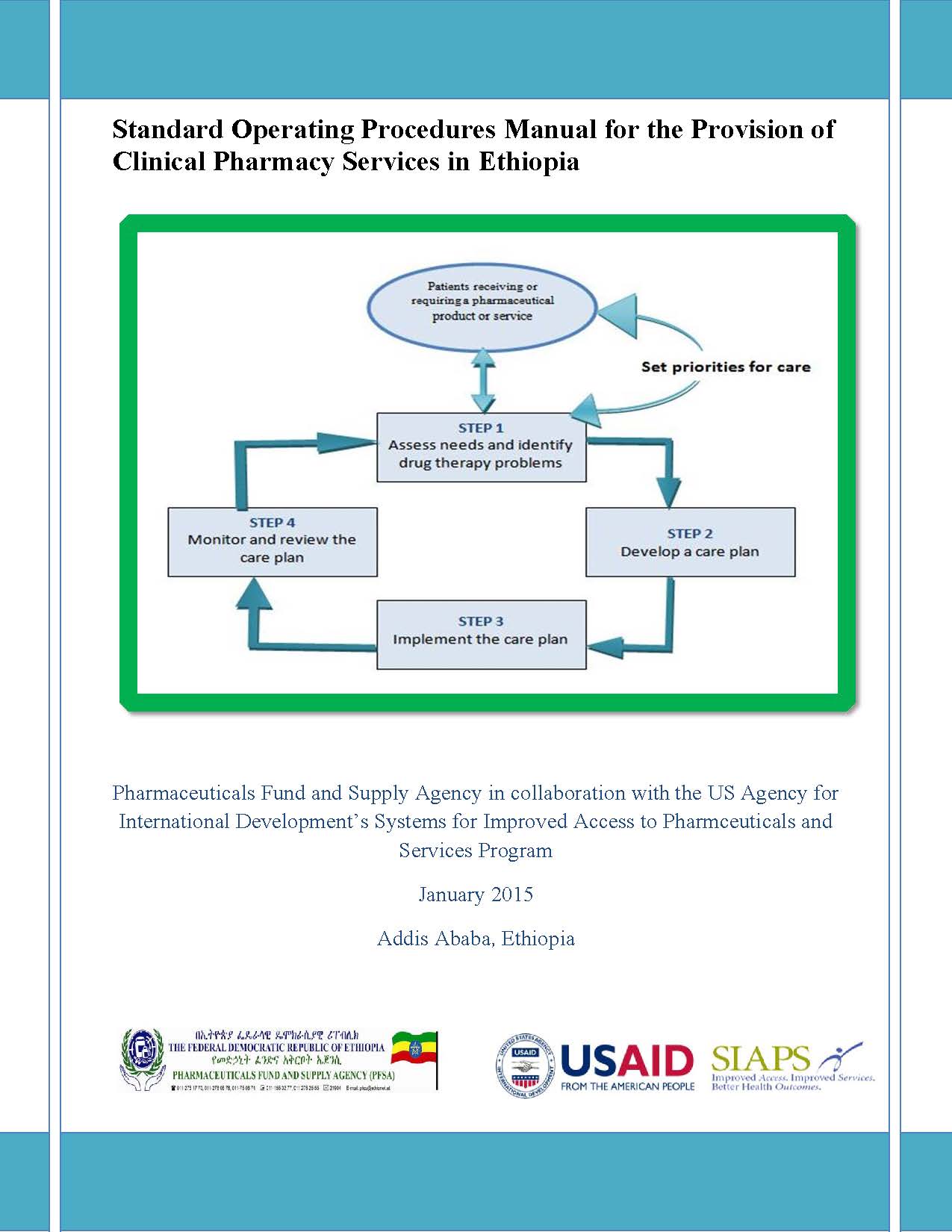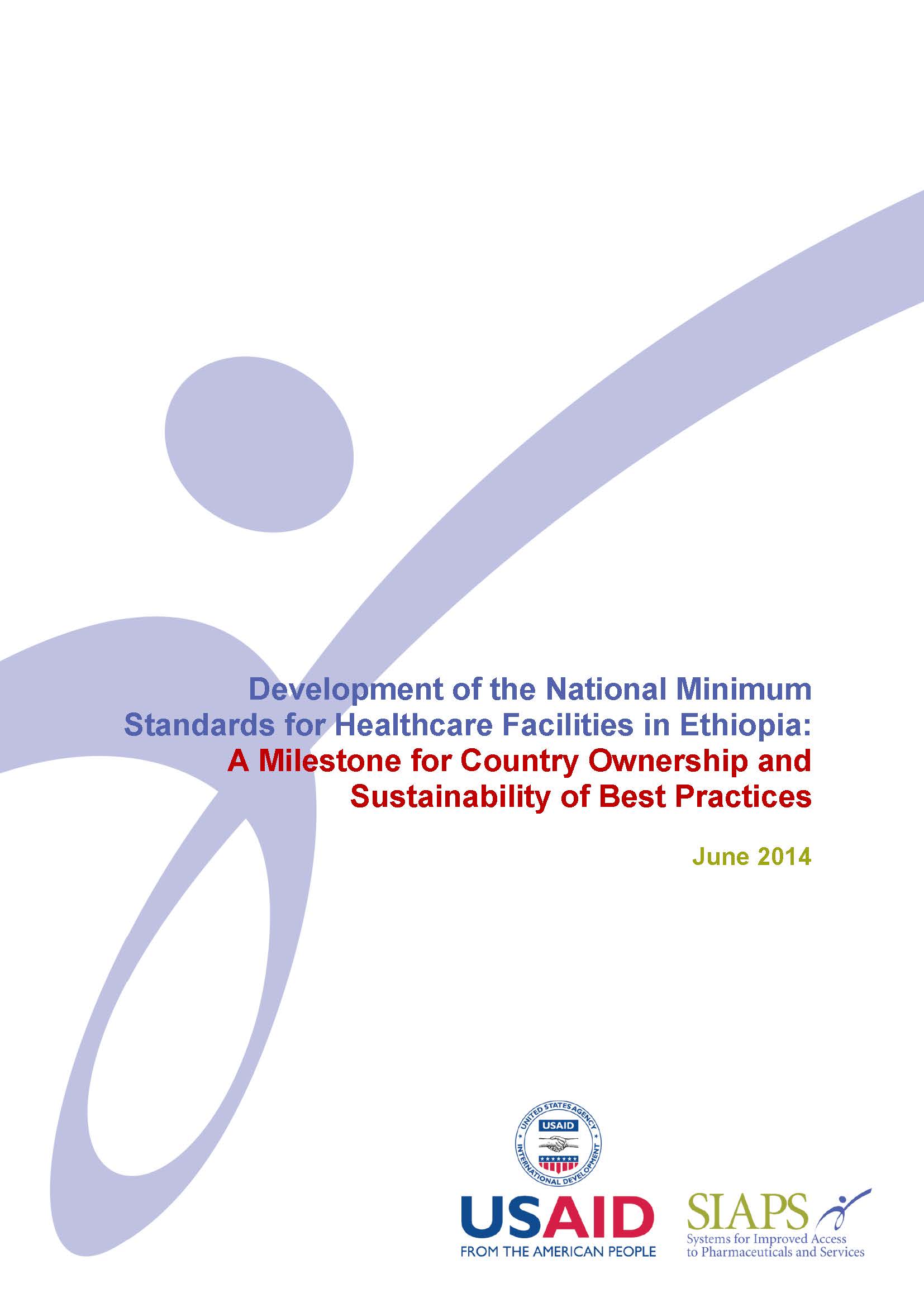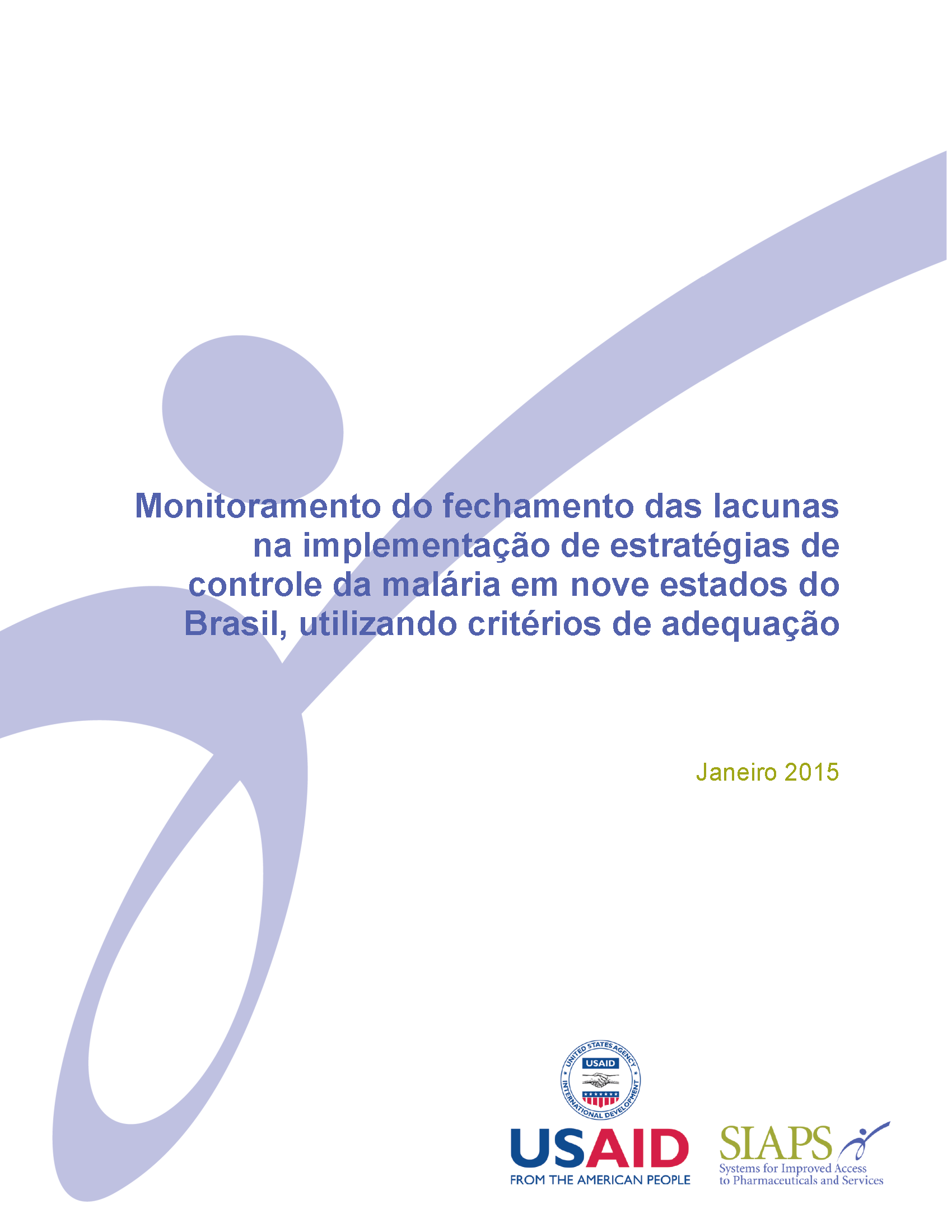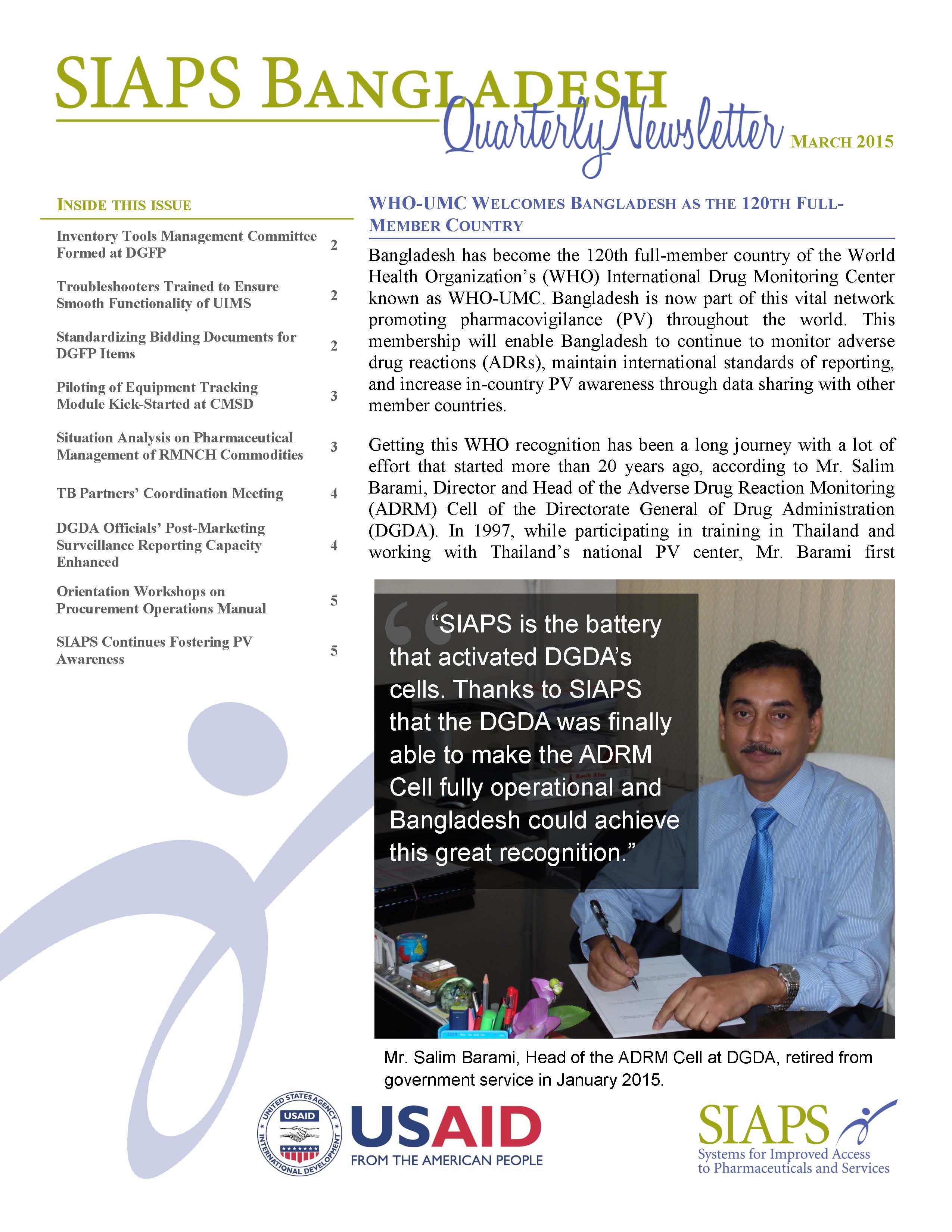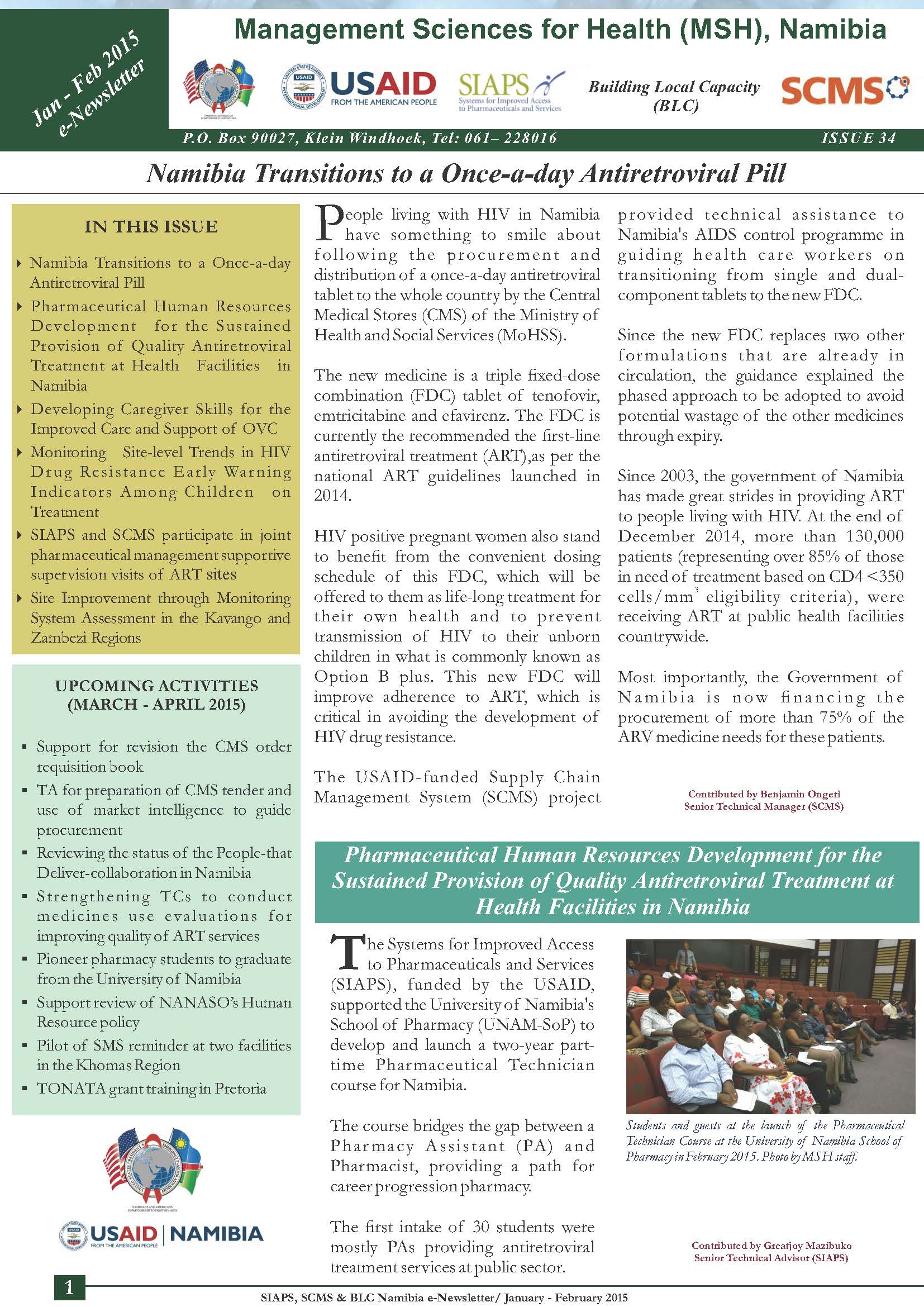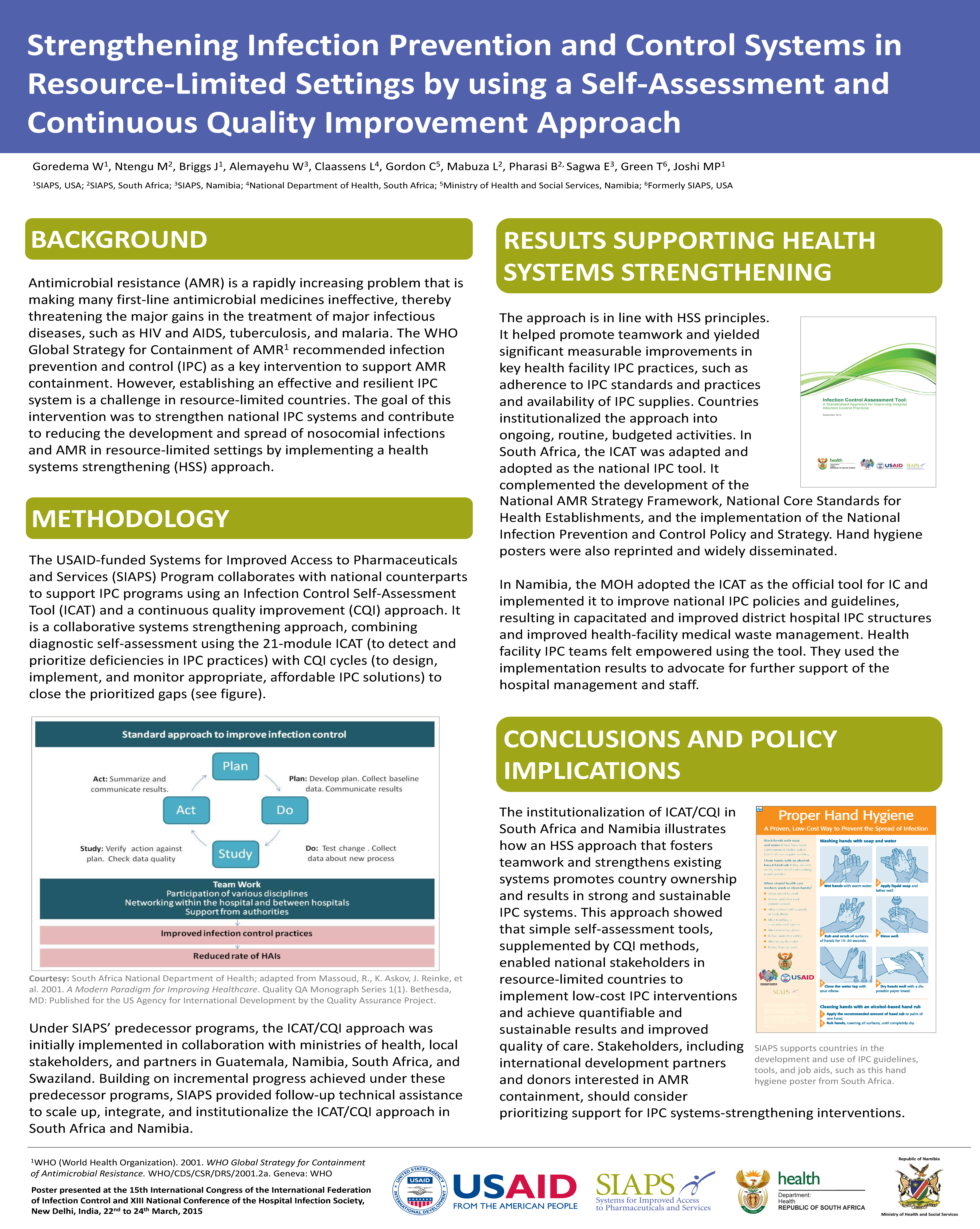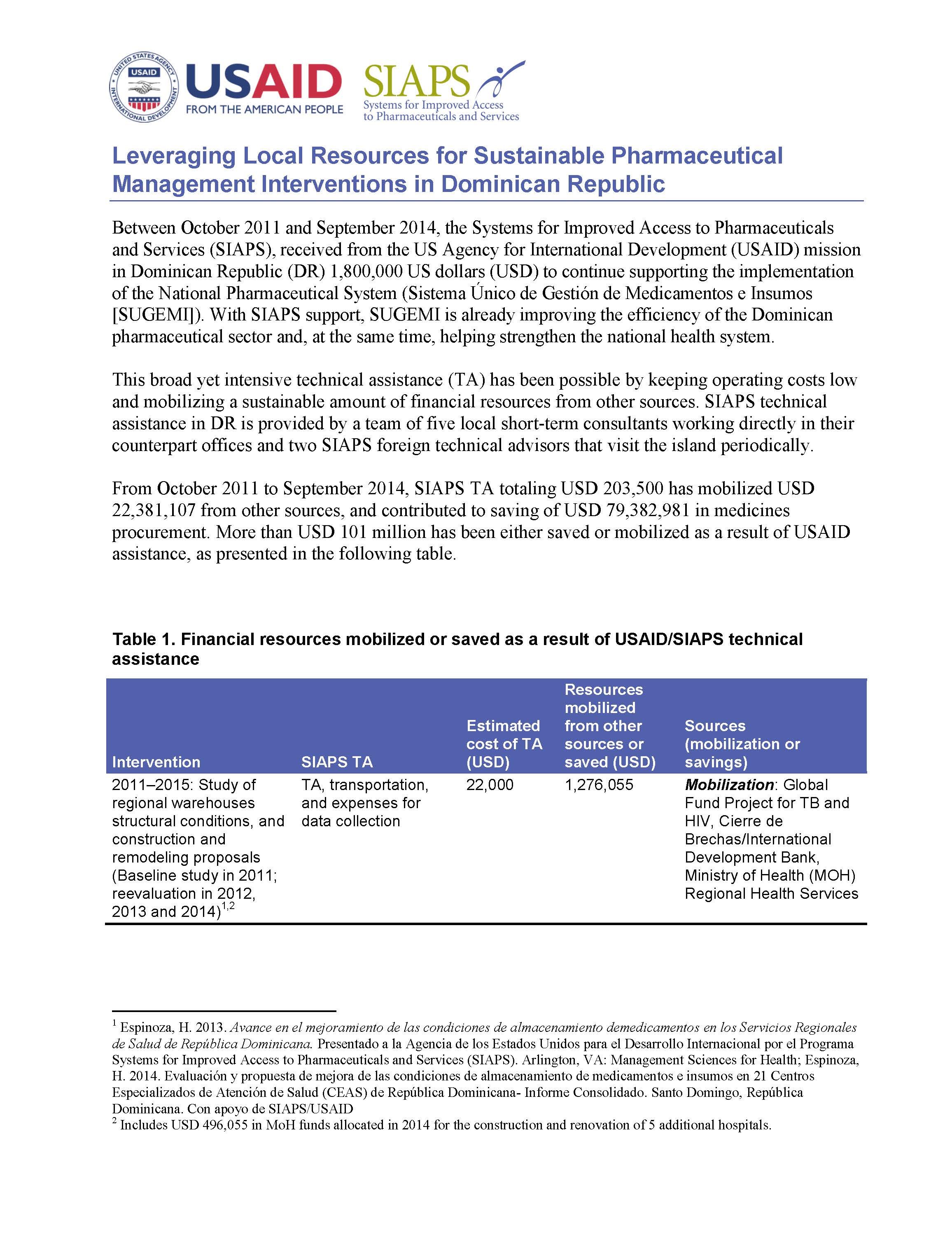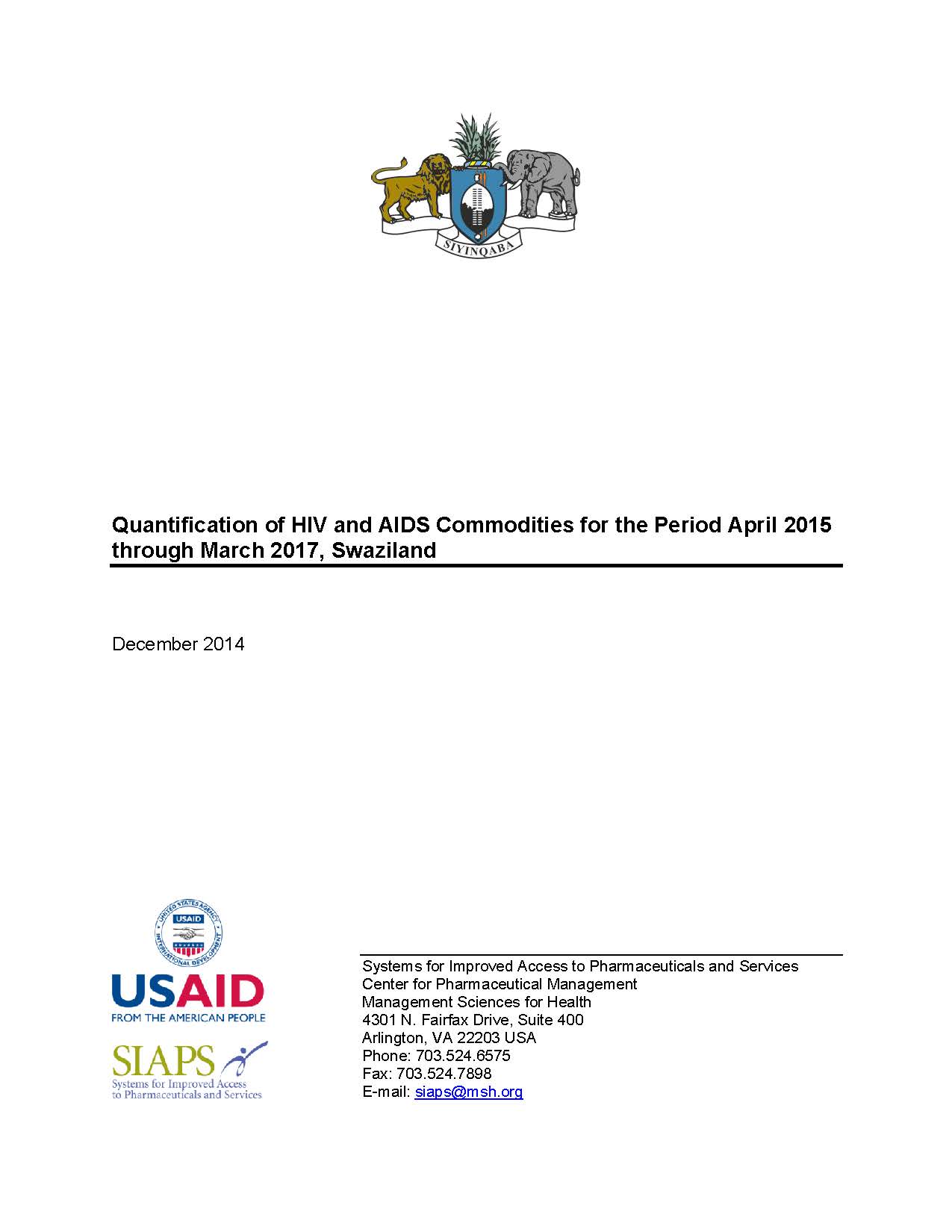According to the 2013 World Malaria Report,1 malaria incidence was reduced by about 31% and mortality rates by 49%in the World Health Organization (WHO) African Region between 2000 and 2012. These substantial reductions occurred as a result of a major scale-up of vector control interventions, diagnostic testing, and treatment with artemisinin-based combination therapies (ACTs). However, … Read more
Amazon Malaria Initiative, Angola, Burundi, capacity building, Democratic Republic of Congo, Ethiopia, governance, Guinea, Kenya, Malaria., Mali, PMI, Quarterly report, South Sudan, Supervision, Supply chain management
Le PNLP se situe dans un contexte marqué par la présence de plusieurs défis : Absence de données fiables sur le nombre de cas de paludisme et la quantité d’intrants antipaludiques utilisés par les structures sanitaires; Difficultés d’estimation des besoins et de planification pour le réapprovisionnement des structures en produits; Nombreuses ruptures de stock de … Read more
The direct involvement of pharmacists in patient care (clinical pharmacy services) is a key intervention to optimize the outcomes of medicine therapy, thereby improving the quality of patient care. The Pharmaceuticals Fund and Supply Agency (PFSA) has been collaborating in efforts to implement clinical pharmacy services in the Ethiopian health care system. As part of … Read more
Licensing is a statutory mechanism by which a governmental authority grants permission to an individual practitioner to engage in an occupation or to a healthcare organization to operate and deliver services. Licensing allows governments to ensure basic public health and safety by controlling the entry of providers and facilities into the health care market and … Read more
This report covers the monitoring of malaria control strategies in nine Brazilian states (in Portuguese).
The overall goal of the SIAPS/Bangladesh program is to build the capacity of MOHFW and its key directorates—DGFP, DGHS, DGDA, and HED—and other indigenous institutions to efficiently and effectively manage their procurement and supply chain management activities. Special focus will be given to TB commodity management at all levels. Read about their progress toward this … Read more
In this issue: Namibia transitions to a once-a-day antiretroviral pill Pharmaceutical human resources development for the sustained provision of quality antiretroviral treatment at health facilities in Namibia Developing caregiver skills for the improved care and support of orphans and vulnerable children (OVC) Monitoring site-level trends in HIV Drug Resistance Early Warning Indicators among children on … Read more
Goredema W, Ntengu M, Briggs J, Alemayehy W, Claassens L, et al. Strengthening infection prevention and control (IPC) systems in resource-limited settings using a self-assessment and continuous quality improvement (CQI) approach. Poster presentation at the 15th International Congress of the International Federation of Infection Control. New Delhi, India.
Antimicrobial Resistance, continuous quality improvement, Infection control, J Briggs, L Claassens, M Ntengu, Namibia, Poster Presentation, rational medicine use, South Africa, W Alemayehu, W Goredema
This brief demonstrates how more than USD 102 million has been saved or mobilized as a result of SIAPS/USAID assistance in supporting the implementation of the National Pharmaceutical System in the Dominican Republic.
HIV and AIDS are the greatest public health and socio-economic development challenges for Swaziland. The Government of Swaziland (GOS) has made significant progress in addressing the epidemic through the implementation of a series of strategic plans and frameworks. Despite its efforts, Swaziland remains one of the countries with a high HIV disease burden. The extended … Read more
